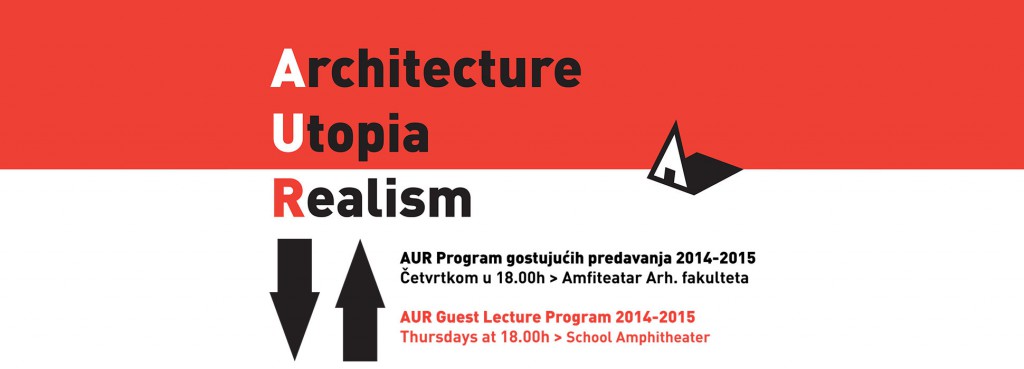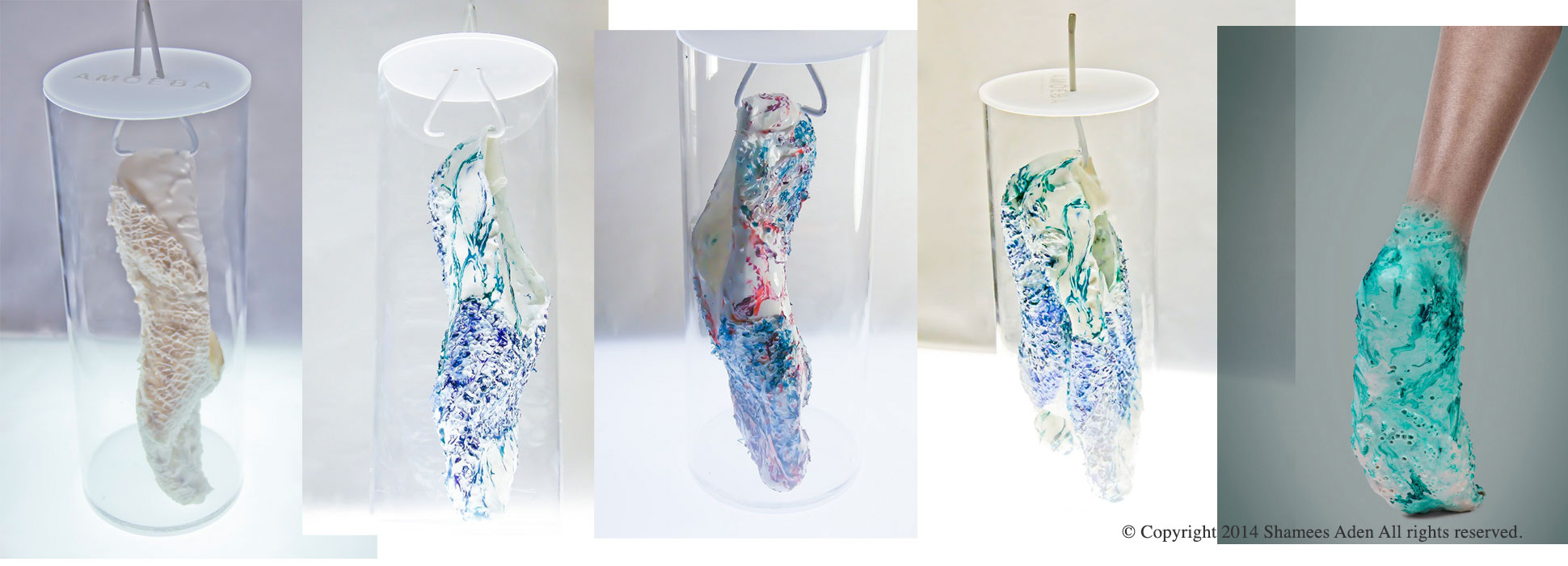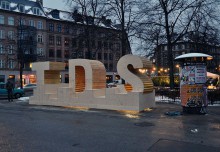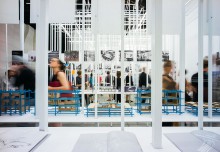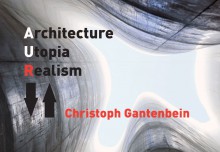Pozivamo Vas na treće predavanje u okviru novog serijala:
Treće gostujuće predavanje u okviru programa Arhitektura. Utopija. Realizam. – AUR 2014/15: program gostujućih predavanja pripada tematskom ciklusu Arhitektura i umetnost.
Dr Betti Marenko je rukovodilac programa Kontekstualnih studija za dizajn proizvoda i rukovodilac istraživanja za program industrijskog dizajna i dizajna proizvoda i keramike, na čuvenom koledžu Central Saint Martins, Univerziteta umetnosti u Londonu.
Njena karijera je u filozofiji, sociologiji i studijama kulture, a njena istraživanja na preseku kreativne filozofije, materijalnosti i dizajna – imaju za cilj razvoj dizajna malih stvari. Njena trenutna istraživanja se bave animizmom kao ključnim post-humanim, post-korisničkim, post-kognitivnim načinom interakcije sa predmetima, digitalnim ili ne-digitalnim.
Ona istražuje promenljiv status tehno-digitalnih predmeta – i mobilne intezitete koji ih karakterišu – kako bi objasnila njihovu inteligenciju koja se razvija. Ona proučava kako ručni mobilni uređaji (smart telefoni, IPod-ovi, Ipad-ovi, Personalni Digitalni Asistenti,…) preoblikuju vezu objekat-subjekat u privremene prekide ljudskog i neljudskog spoja.
Njeno izlaganje će raspravljati o promeni predmeta u događaj, predstavljeno kod francuskog filozofa Gilles Deleuze-a – gde prostor postaje vreme, forma postaje formacija i oblikovanje postaje raznolikost – što dizajnerske prakse i razmatranja trebaju da uzmu u obzir kao bitan materialni, epohalni preokret.
Morfo-genetska perspektiva na ovu temu nameće preispitivanje nekih pretpostavki dizajna: kako zapravo nastaju predmeti, i u širem smislu, odnos samog dizajna i materijalnosti.
Dobrodošli!
Vreme i mesto
/18.00 časova/
/Univerzitet u Beogradu – Arhitektonski fakultet/
/Amfiteatar/
/18.00 hours/
/University of Belgrade – Faculty of Architecture/
/Amphitheater/
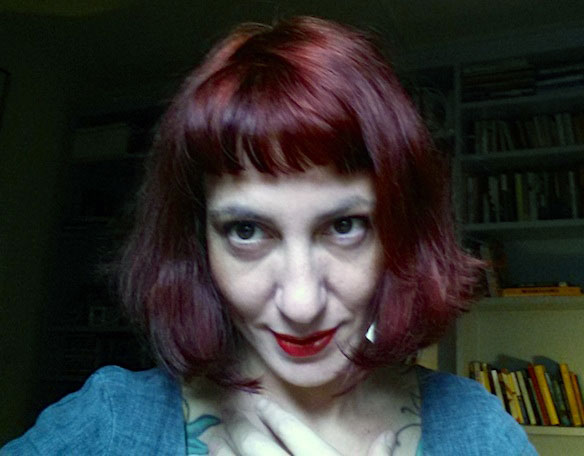
Dr Betti Marenko
Abstract
Betti Marenko explores the changing status of the technodigital object – and the mobile intensities that characterize the current objectscape – to account for objects’ evolving intelligence. She looks at how hand-held mobile devices (smart phones, IPods, IPads PDAs), are reshaping the nexus object-subject into temporal discontinuities of human and non-human assemblages.
Her talk argues that the shift from object to event delineated by Gilles Deleuze – where space becomes time, form becomes formation, and moulding becomes modulation – needs to be taken on board by design practices and discourses as constitutive of a material-driven epochal shift.
A morphogenetic perspective on matter prompts design to question some of its assumptions around how objects actually come to exist, and in broader terms, design’s own relationship with materiality.
She argues for a shift in design’s theoretical location, from design as a problem solving activity – a task-oriented, performance-measured, linear exercise, that reduces uncertainty, a conventional view of design as a technology of affective capture enforcing and reproducing market ideologies – to design as a problem finding enterprise – that is, an enterprise that veers towards problematizing and complexifying the existent.
Within this morphogenetic framework design should come unhinged from its teleological fixation with form and function, and embrace instead an intuition-based apprehension rooted in ‘following matter’, vagueness and variation.
This perspective is deployed to examine the silicon-based materiality of digital devices and their key component, the microchip. Silicon is examined in reference to both Deleuze’s prophetic ‘revenge of the silicon’ and also by looking at how a new breed of microchips that ‘follow’ neural activity (neuromorphic chips) are bypassing the distinction between carbon and silicon-based life, animate and inanimate matter, and articulating new forms of intelligence.
The convergence of silicon and carbon, via Deleuze’s concept of nonorganic life, allows Marenko to read the technodigital object as the site of diverse material intelligences unfolding morphogenetically, beyond the narrow paradigms of cyborgness on the one hand and dematerialization on the other.
The Amoeba – Shamees Aden © Copyright 2014 Shamees Aden All rights reserved.
Bio
Dr. Betti Marenko is Contextual Studies Programme Leader for Product Design, and Research Leader for the Programme of Ceramic, Industrial and Product Design, Central Saint Martins, University of the Arts, London.
She has a background in philosophy, sociology and cultural studies and her research at the intersection of creative philosophies, materialities and design aims at developing lines of minor design. She has recently edited (with Jamie Brassett) the volume Deleuze and Design, Edinburgh University Press (forthcoming June 2015). Her current research investigates animism as the key post-human, post-user, post-cognitive mode of interaction with objects, digital and non-digital. She is on the editorial board of the journal Design and Culture.
She regularly speaks at international conferences, most recently:
- What’s the Matter. Materiality and Materialism at the Age of Computation. International Conference at the Chamber of Architects. COAC, ETSAB, ETSAV, Barcelona, Sep 2014;
- Political Aesthetics – Political Design. Institute for Design Research (IDE), Zurich University of the Arts, Apr 2014;
- Good Things and Bad Things Symposium. Nottingham Trent University and the Design Research Society, Jun 2013;
- Design Studies Forum Deterritorializing Design. Rethinking the relationship between theory and practice. CAA – College Art Association Conference, New York, Feb 2013.
Among her publications:
- (forthcoming 2015) Deleuze and Design, Edinburgh: Edinburgh University Press (with J. Brassett)
- (forthcoming 2015) ‘Filled with wonder. The Enchanting Android from Cams to Algorithms.’ in Encountering Things. Design and Thing Theory. L. Atzmon and P. Boradkar (eds.) London: Bloomsbury Press
- (forthcoming 2015) ‘The Un-Designability of the Virtual. Design from Problem-Solving to Problem-Finding’ in UnDesign. G. Sade, G. Coombs, A. McNamara (eds.) Urban Modernities Research group, Brisbane. London: Continuum
- 2014 ‘Neo-Animism and Design. A New Paradigm in Object Theory’. Special issue of Design and Culture, the Journal of the Design Studies Forum. Theme: Design, thing theory and the lives of objects. L. Atzmon (ed.). London: Berg. Issue 6.2. pp. 219-242
- 2010 ‘Contagious Affectivity. The Management of Emotions in Late Capitalist Design‘ in Negotiating Futures – Design Fiction, proceedings from the 6th Swiss Design Network Conference, Basel, pp. 134-149
- 2009 ‘Object-Relics and their Effects: for a Neo-Animist Paradigm’ in Objets & Communication. B. Darras and S. Belkhamsa (eds.) MEI ‘Mediation and Information’ review n. 30-31, Centre of Image, Research, Culture and Cognition, University Paris 1 Panthéon-Sorbonne. Paris, Editions de l’Harmattan, pp 239-253
http://www.arts.ac.uk/csm/people/teaching-staff/product-ceramic-and-industrial/dr-betti-marenko/
https://uk.linkedin.com/pub/betti-marenko/27/427/39a

